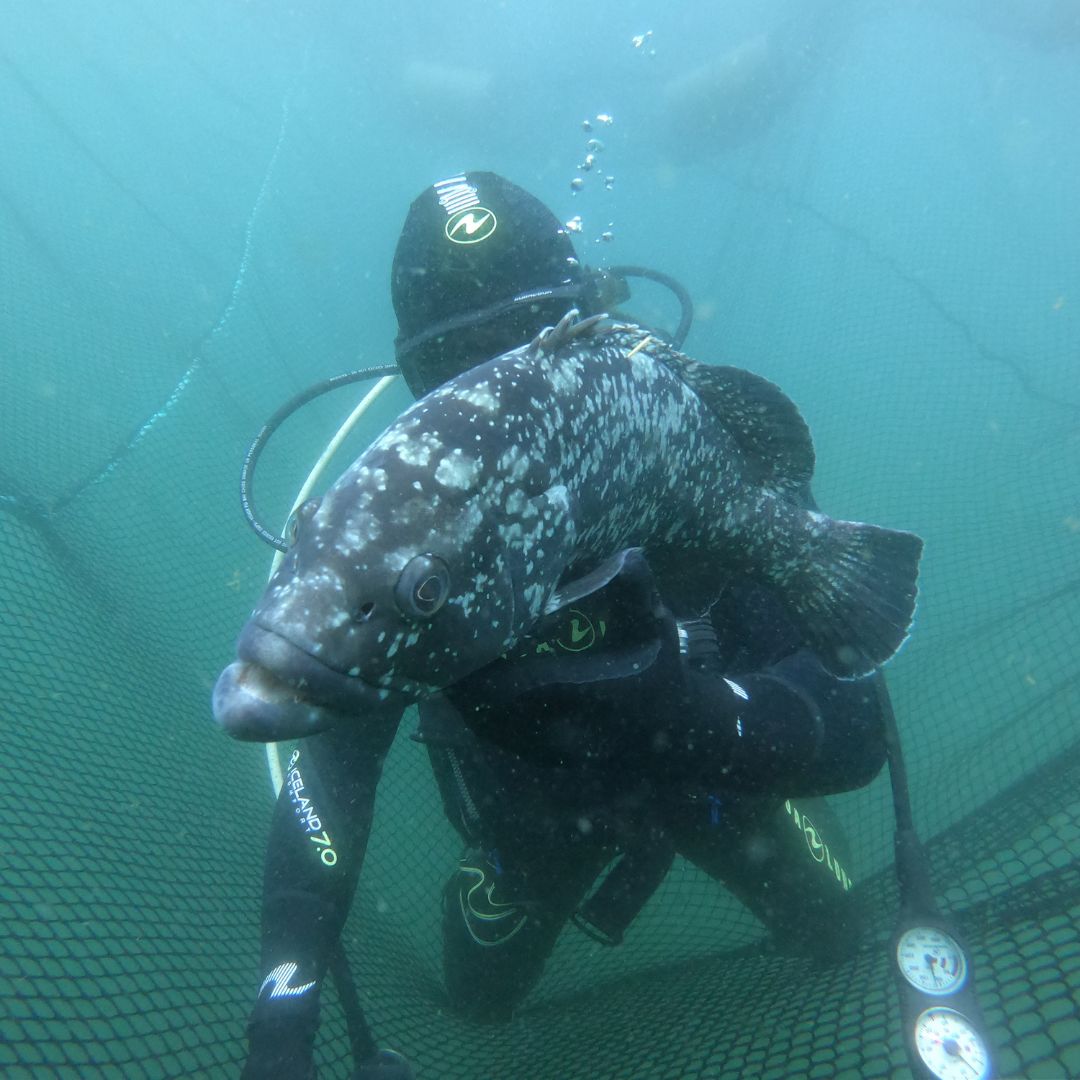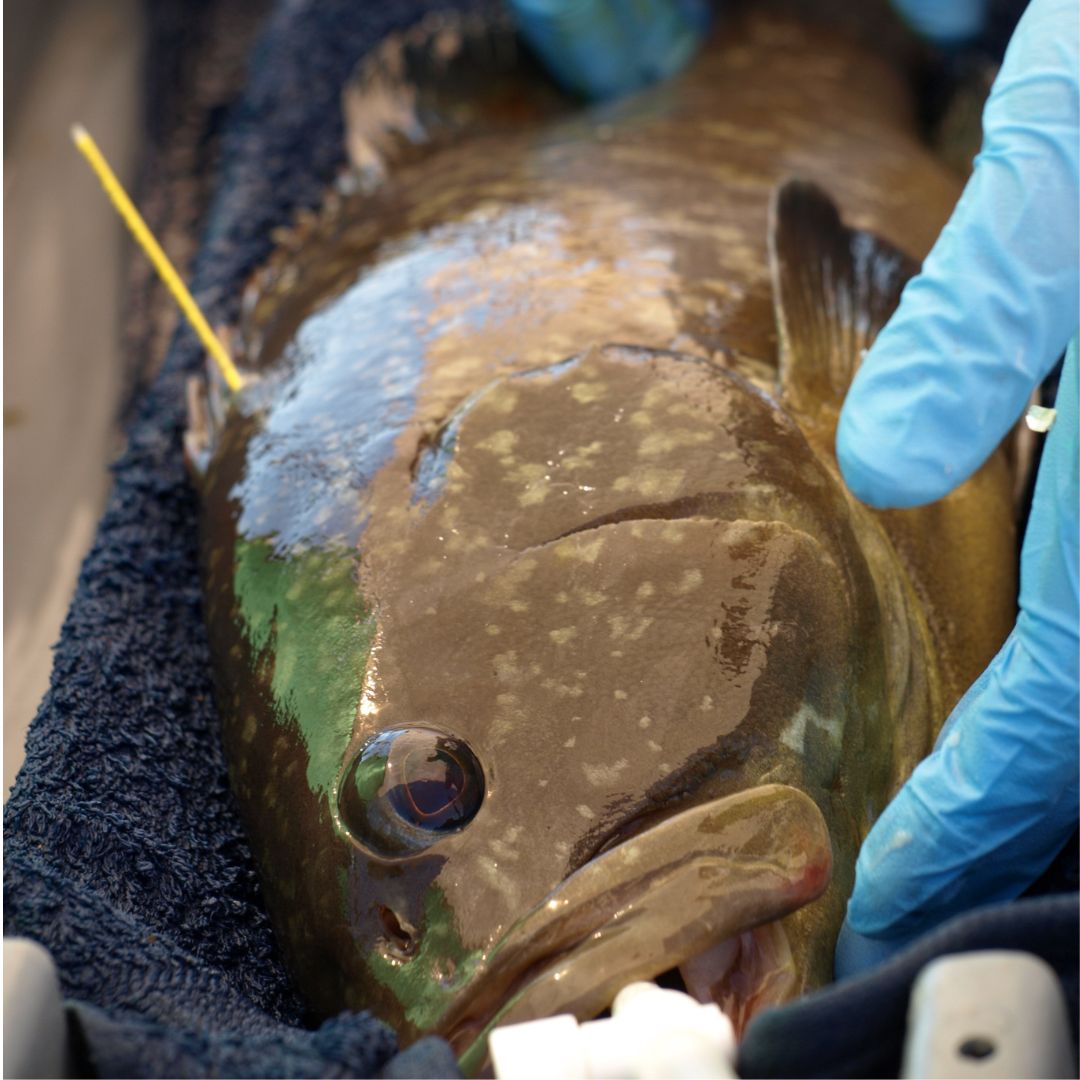MARE strengthens marine conservation with pioneering study on restocking with groupers
A study led by teams from MARE-ULisboa and MARE-UÉvora shows that acclimatization in a marine environment increases the success of restocking with groupers bred in captivity.
A study carried out by researchers from MARE - Centro de Ciências do Mar e do Ambiente/ARNET - Rede de Investigação Aquática, through its units at the Faculty of Sciences of the University of Lisbon (CIÊNCIAS ULisboa) and the University of Évora, has shown that a short period of acclimatization at sea can make all the difference to the success of restocking actions with groupers (Epinephelus marginatus), an emblematic species of the Portuguese coast and considered “Endangered” in Europe.
The work, recently published in the journal Aquatic Conservation: Marine and Freshwater Ecosystems, was carried out in the area of the Southwest Alentejo and Costa Vicentina Marine Park, where grouper catching has been banned since 2011. Even so, the species' recovery has been slow, hampered by factors such as slow growth, late maturation and territorial behavior.
"The common grouper is to the marine environment as the Iberian lynx is to the terrestrial environment. It is a top predator and its presence is indicative of the high ecological quality of the aquatic ecosystem," says Bernardo Quintella, researcher at MARE-ULisboa/ARNET and coordinator of the study.

In the experiment, 15 adult groupers produced in captivity by the Portuguese Sea and Atmosphere Institute (IPMA)/Olhão Pilot Fish Farming Station (EPPO) were released in the Port of Sines. Half of the specimens spent five weeks in containment facilities at sea before their final release, while the rest were released directly. All the fish were equipped with electronic devices that allowed their movements to be monitored.
"The results were clear: half of the groupers that went through the acclimatization phase could still be detected at the release site ten months after restocking, and one of them remained in the area for more than two years. In contrast, the non-acclimatized individuals dispersed quickly, many in less than two days," explains Ana Filipa Silva, researcher at MARE-ULisboa/ARNET and PhD student, first author of the study.
The data collected through acoustic biotelemetry - more than 200,000 signals recorded - confirms the importance of allowing the animals a period of habitat recognition before their final release. This additional step can be decisive in strengthening the permanence of fish in protected areas and increasing the chances of reproductive success.
“This work represents a concrete advance in marine conservation strategies,” says Bernardo Quintella. “By ensuring that the fish recognize the habitat and remain in the protected areas, we increase the likelihood of reproductive success and population recovery.”
The recovery of the grouper is also relevant from an economic point of view, particularly for diving tourism and sustainable fishing. “As the species has a high value for fishing and recreational diving, its recovery could also be economically important at a regional level,” adds João Castro, a researcher at MARE-UÉvora/ARNET and a member of the research team.
The study was carried out in collaboration with IPMA and ICNF, as part of the MARSW and ATLAZUL projects, with funding from POSEUR, INTERREG, the Environmental Fund and support from the municipalities of Odemira, Aljezur and Vila do Bispo. The biotelemetry infrastructure was provided by the CoastNet network, and the work also had the technical support of Seaculture and the Sines and Algarve Port Administration.
"The conservation of this species will necessarily have to involve a more integrated approach, aimed at the marine ecosystem as a whole. What we're doing is trying to speed up the recovery of the grouper in a protected marine area," concludes Bernardo Quintella.
